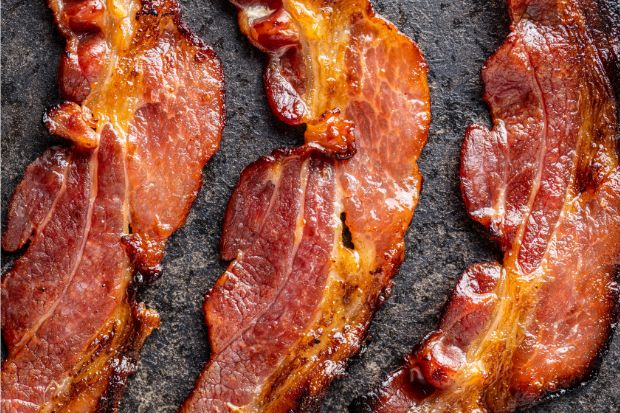Bacon is a delicious and versatile food that’s enjoyed in many different ways. However, it loses a significant amount of weight when cooked.
For example, a cooked bacon strip will weigh approximately 31% less than an uncooked bacon strip of the same size. That’s because bacon contains a high percentage of fat, and much of it is rendered out during the cooking process. Additionally, the high water concentration in uncooked bacon also evaporates, contributing to the weight loss.
How Much Weight Does Bacon Lose During the Cooking Process?
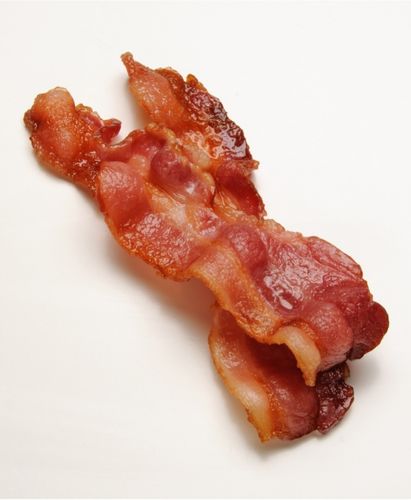
This is a question that many people have asked, and the answer is not as simple as you might think. There are a lot of variables that come into play when cooking bacon, which can affect how much weight it loses. These factors include:
The Type of Bacon
The type of bacon you purchase plays a significant role in how much weight it loses during the cooking process. For example, bacon that is high in fat will lose more weight than bacon that is leaner. This is because the fat renders out during the cooking process, and the leaner bacon will have less fat to render out.
Likewise, cured bacon will lose less weight than uncured bacon because the curing process adds weight to the bacon. Curing bacon involves adding salt and other ingredients, increasing its weight.
The Cooking Method
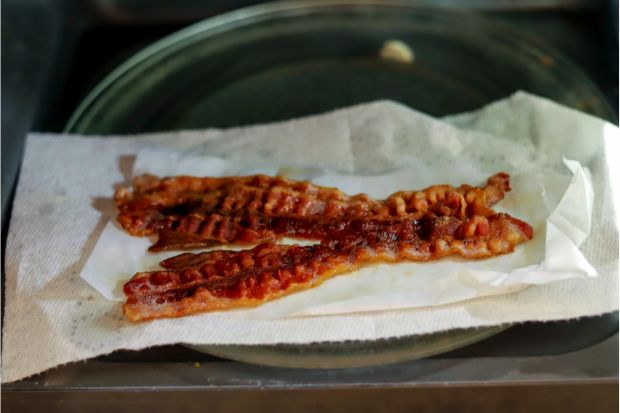
Bacon can be cooked in many different ways, such as frying, baking, or grilling. And each method will result in a different amount of weight loss. For instance, pan-fried bacon loses an average of 31% weight, while microwaved bacon loses 26%. That’s because some of the bacon fat is rendered out during the cooking process, and this can cause the bacon to shrink and lose weight. Likewise, oven-cooked bacon pieces retain more moisture than pan-fried ones, resulting in a higher final weight.
The Cooking Temperature
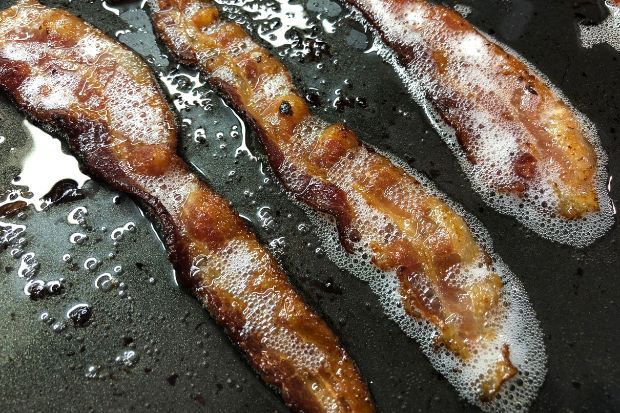
When a piece of bacon is cooked at higher temperatures, it loses more water than at lower temperatures, and it tends to curl up. Additionally, the fat in bacon will begin to render out at around 80 degrees Fahrenheit, so pieces of bacon cooked at a higher temperature will lose more fat than bacon cooked at a lower temperature.
The Thickness of the Bacon
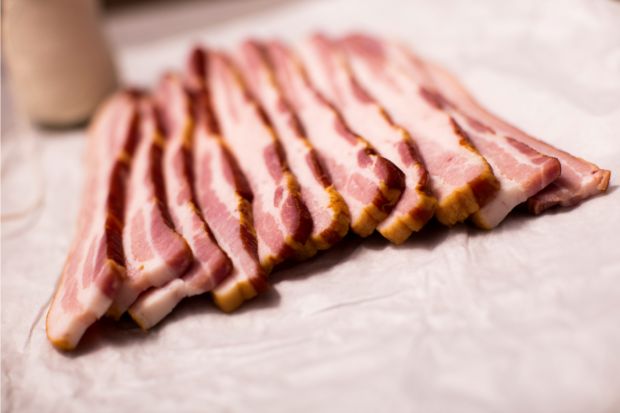
The bacon’s thickness also affects how much weight it loses during the cooking process. Thinner bacon strips will lose more water than thicker bacon strips because they have less fat to render out. Additionally, thinner strips of bacon will cook faster than thicker bacon strips, losing more moisture.
Thick-cut bacon is about 1/4 inches thick, while regular bacon is about 1/8 inches thick. When bacon is cooked, it shrinks—usually by about 30 per cent. So if you have a pound of raw bacon, you’ll end up with about two-thirds of a pound of cooked bacon.
Determining How Much Your Bacon Weighs Before and After Cooking
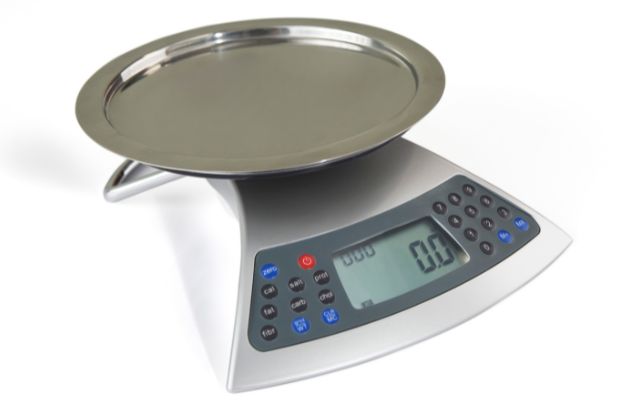
Cooking bacon can be a bit of a guessing game—how do you know how much it will shrink, and how do you know if you’ve cooked it long enough? Here’s a handy guide to help you determine how much your bacon weighs before and after cooking.
First, weigh your uncooked bacon on a food scale. Take note of the weight, then cook the bacon according to your preferred method—stovetop, oven, or microwave.
Once the bacon is cooked, remove it from the heat and allow it to cool for a few minutes. Then use a paper towel to pat the bacon dry and weigh it again. The difference between the weight of the bacon after cooking and before will give you an approximate idea of how much your bacon has shrunk.
Keep in mind that bacon shrinks more when cooked at a higher temperature, so if you like your bacon crispier, it will shrink more than if you cook it slowly at a lower temperature.
How Much Does a “Pound” of Bacon Actually Weigh?
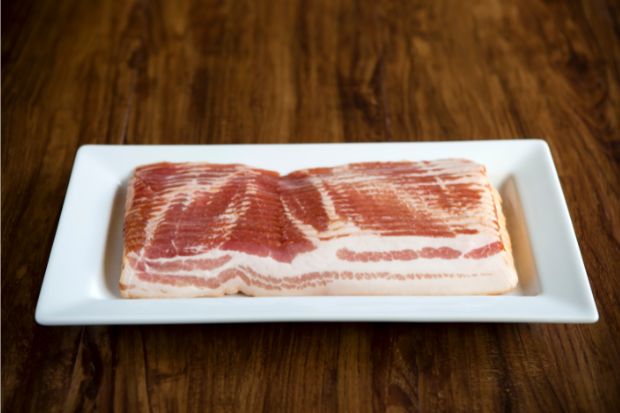
This may seem like a ridiculous question, but a single “pound” of bacon can actually weigh anywhere from 12 to 16 ounces. The exact weight depends on the type of bacon and the curing and smoking process. For example, a pound of traditional pork bacon typically weighs 16 ounces, while a pound of turkey bacon usually weighs 12 ounces.
When it comes to weight, curing and smoking also play a role. For instance, a pound of uncured bacon will generally weigh more than a pound of cured bacon. Similarly, a pound of smoked bacon will often weigh less than a pound of unsmoked bacon. Ultimately, the weight of bacon varies depending on the type, curing, and smoking process. However, a general rule of thumb is that one pound of bacon equals 16 ounces.
Bacon Doneness
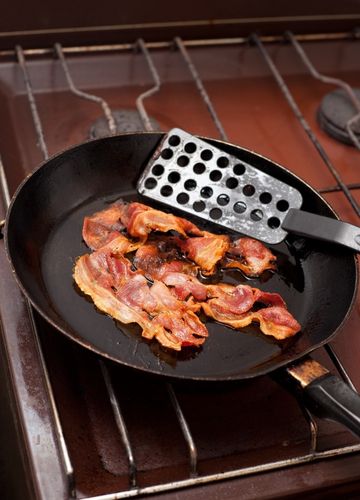
As for doneness, the USDA recommends cooking bacon until it reaches an internal temperature of 145 degrees Fahrenheit, same as ham. Use a meat thermometer to check for doneness: insert it into the thickest part of the bacon and wait for a few seconds for the accurate reading. Once your bacon has reached the desired temperature, remove it from the heat and enjoy!
Bacon is made up of two types of fat: saturated and unsaturated. So it’s essential to cook bacon until it reaches the desired level of doneness. Otherwise, the bacon will be tough and chewy.
Bottom Line
Now that you know bacon loses weight when cooked, you can account for this when cooking it at home. And don’t forget—cooking bacon is messy, so make sure to have plenty of paper towels on hand!
